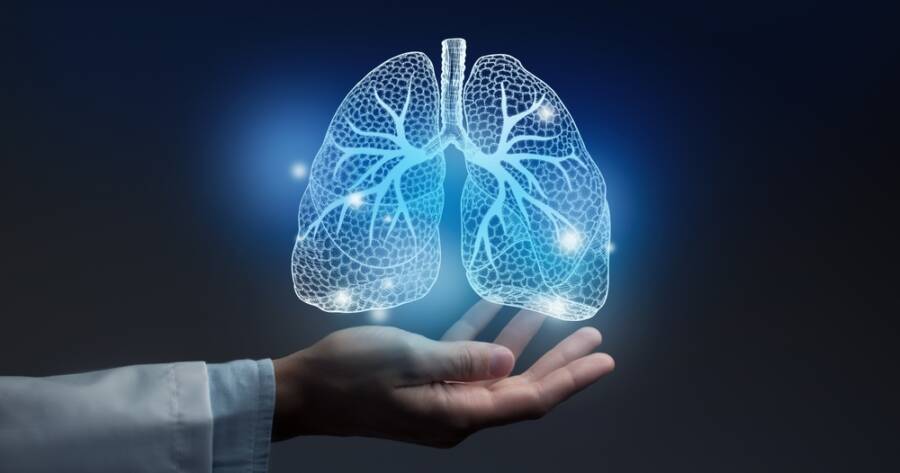Unravel the mysteries of lung cancer: early detection, advanced treatments, and support networks. Take control of your health. Stay informed about the latest research and breakthroughs.
What is Lung Cancer?
Lung cancer is a malignant lung disease characterized by the uncontrolled growth of abnormal cells in the tissues of the lungs. It is the leading cause of cancer-related deaths worldwide, accounting for approximately 1.8 million fatalities annually. Lung cancer primarily affects individuals who smoke or have a history of smoking, but it can also occur in non-smokers due to various risk factors such as exposure to secondhand smoke, air pollution, certain occupational hazards, and genetic factors.1
The two main types of lung cancer are non-small cell lung cancer (NSCLC) and small cell lung cancer (SCLC). NSCLC is the most common type, accounting for approximately 85% of all lung cancer cases. It includes various subtypes such as adenocarcinoma, squamous cell carcinoma, and large cell carcinoma. SCLC, on the other hand, is less common and is characterized by rapid growth and spread.
Lung cancer often goes undetected in its early stages as it may not cause noticeable symptoms. As the disease progresses, individuals may experience a persistent cough, shortness of breath, chest pain, coughing up blood, unexplained weight loss, and fatigue. It is crucial to seek medical attention if any of these symptoms persist or if an individual is at high risk due to smoking or other risk factors.
Learn About Lung Cancer Symptoms, Causes, and Risk Factors
Lung cancer symptoms can vary depending on the location and size of the tumor. Some common symptoms include:
- Persistent cough that does not improve or worsens over time
- Shortness of breath or wheezing
- Chest pain or discomfort
- Coughing up blood or rust-colored sputum
- Unexplained weight loss
- Fatigue or weakness
- Hoarseness or changes in voice
- Swelling in the face, neck, or arms
- Bone pain
- Headaches or neurological symptoms
The primary cause of lung cancer is smoking tobacco, including cigarettes, cigars, and pipes. Inhaling secondhand smoke can also increase the risk of developing lung cancer. Other risk factors include exposure to certain occupational hazards such as asbestos, radon gas, and certain chemicals, as well as a family history of lung cancer.
It is important to note that not all individuals who smoke or are exposed to risk factors will develop lung cancer. However, avoiding smoking and minimizing exposure to known risk factors can significantly reduce the chances of developing the disease.
Discover Treatment Options and Support for Lung Cancer Patients
Treatment options for lung cancer depend on the stage of the disease, the type of lung cancer, and the individual’s overall health. Common treatment modalities include surgery, radiation therapy, chemotherapy, targeted therapy, immunotherapy, and palliative care.
Surgery is often the preferred treatment for early-stage lung cancer when the tumor is localized and has not spread to other parts of the body. Surgical procedures may involve removing the tumor, a portion of the lung, or the entire lung. Radiation therapy uses high-energy X-rays or other forms of radiation to kill cancer cells. It can be used before or after surgery, or as a standalone treatment.2
Chemotherapy involves the use of drugs to kill cancer cells throughout the body. It is often used in combination with surgery or radiation therapy. Targeted therapy and immunotherapy are newer treatment options that target specific molecules or immune cells involved in cancer growth and spread. Palliative care focuses on managing symptoms and improving the quality of life for individuals with advanced lung cancer.
Learn More About Lung Cancer
Lung cancer is a serious disease, but early detection and advancements in treatment have improved the outlook for many patients. If you are experiencing any of the symptoms mentioned above or are at high risk due to smoking or other factors, it is important to see a doctor for evaluation and appropriate management.
Additional resources and information about lung cancer are available from reputable sources such as the American Cancer Society, the National Cancer Institute, and the Centers for Disease Control and Prevention.
